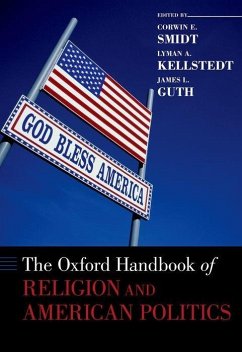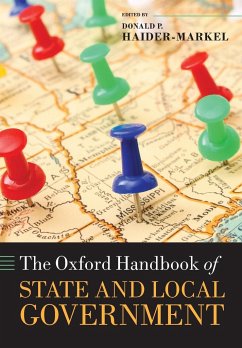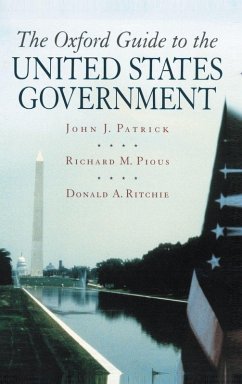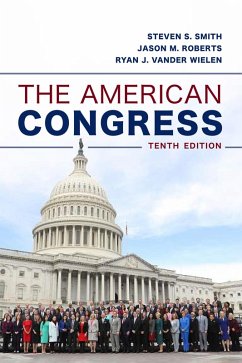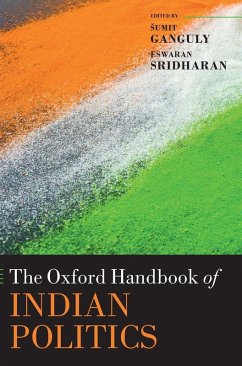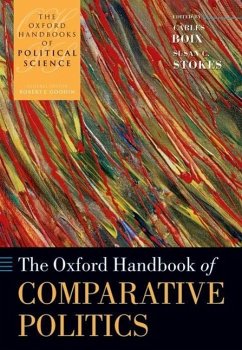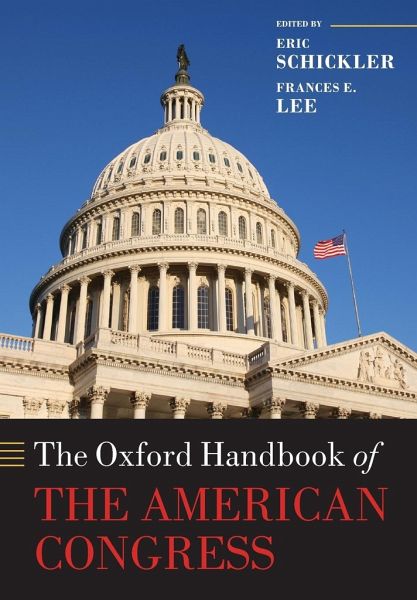
Broschiertes Buch
The Oxford Handbook of the American Congress
Versandkostenfrei!
Versandfertig in 1-2 Wochen

PAYBACK Punkte
34 °P sammeln!




The Oxford Handbooks of American Politics are the essential guide to the study of American political life in the 21st Century. With engaging, new contributions from the major figures in the field The Oxford Handbook of the American Congress provides the key point of reference for anyone working in American Politics today.
Eric Schickler is the author of Disjointed Pluralism: Institutional Innovation and the Development of the U.S. Congress (Princeton University Press, 2001) and co-author, with Greg Wawro, of Filibuster: Obstruction and Lawmaking in the U.S. Senate (Princeton University Press, 2006). Both books received APSA's Richard F. Fenno Award for the best book published on legislative politics. He is also co-author of Partisan Hearts and Minds (with Donald Green and Bradley Palmquist), which was published in 2002 (Yale University Press). He has authored or co-authored articles in the American Political Science Review, American Journal of Political Science, Journal of Politics, Legislative Studies Quarterly, Comparative Political Studies, Studies in American Political Development, Public Opinion Quarterly, and Social Science History. He is Jeffrey and Ashley McDermott Chair in Political Science at the University of California, Berkeley. Frances E. Lee is author of Beyond Ideology: Politics, Principles and Partisanship in the U.S. Senate (University of Chicago Press, 2009), coauthor of Sizing Up The Senate: The Unequal Consequences of Equal Representation (University of Chicago Press 1999), and co-author of a comprehensive textbook on the U.S. Congress, Congress and Its Members (CQ Press). Her research has appeared in the American Political Science Review, American Journal of Political Science, Journal of Politics, and Legislative Studies Quarterly. Her work has received national recognition, including the APSA's E. E. Schattschneider Award for the best dissertation in American Politics, the D. B. Hardeman Award presented by the Lyndon Baines Johnson Foundation for the best book on a congressional topic, and the APSA's Richard F. Fenno, Jr. Award for the best book on legislative politics published. She is Professor of Government and Politics at the University of Maryland-College Park.
Produktdetails
- Verlag: Oxford University Press(UK)
- Seitenzahl: 942
- Erscheinungstermin: 1. Mai 2013
- Englisch
- Abmessung: 244mm x 170mm x 50mm
- Gewicht: 1589g
- ISBN-13: 9780199650521
- ISBN-10: 0199650527
- Artikelnr.: 36817661
Herstellerkennzeichnung
Libri GmbH
Europaallee 1
36244 Bad Hersfeld
gpsr@libri.de
Für dieses Produkt wurde noch keine Bewertung abgegeben. Wir würden uns sehr freuen, wenn du die erste Bewertung schreibst!
Eine Bewertung schreiben
Eine Bewertung schreiben
Andere Kunden interessierten sich für


